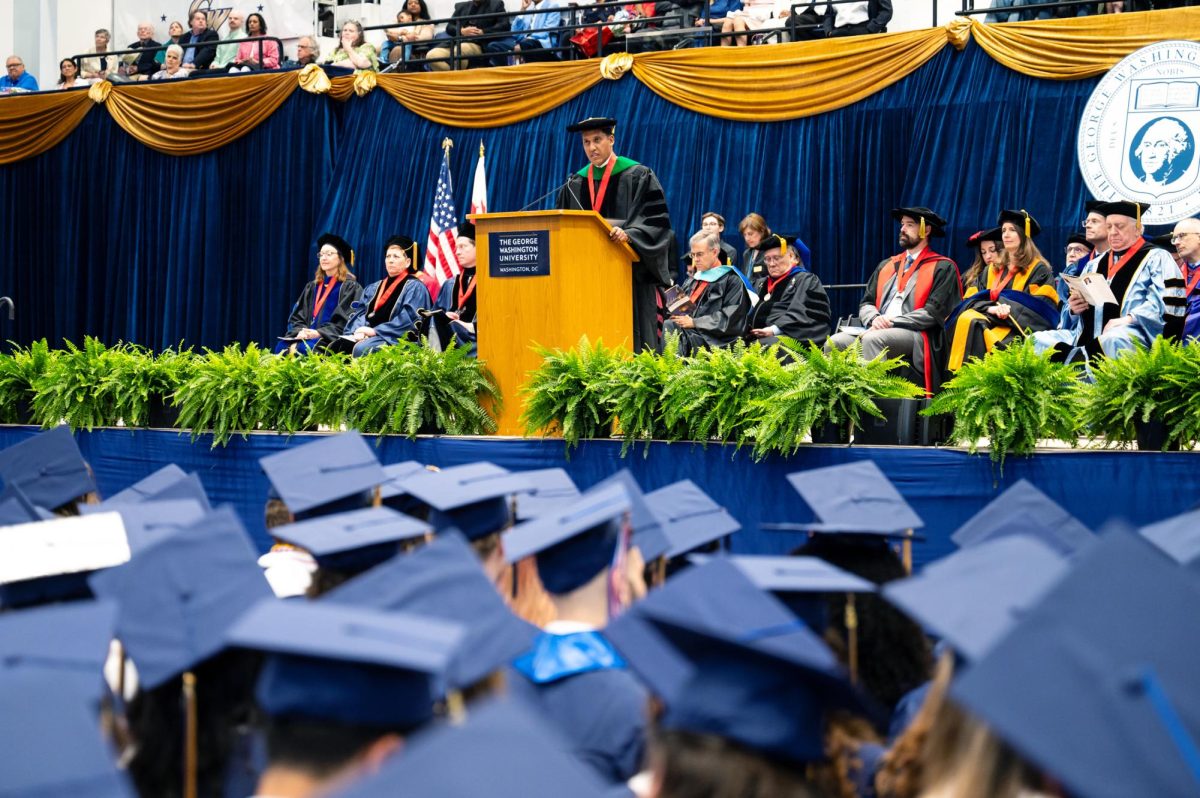Updated: May 20, 2024, at 11:43 a.m.
The president of a philanthropic foundation told Elliott School of International Affairs graduates not to settle for less change than they set out to achieve at the school’s graduation ceremony Friday.
Rajiv Shah, the president of the Rockefeller Foundation, a foundation that works to increase economic opportunity and reverse climate crisis effects, said in the face of the extraordinary global challenges, including the “horrific terror” inflicted on Israelis in October and the “deeply tragic” human suffering in Gaza, it is easy to give up in the face of adversity and when one is told the issue is impossible to fix. He said rather than settling on incremental change, graduates must set “audacious” goals, keep searching for solutions, measure progress and build connections with those they work with.
“If you’re constantly searching for solutions, you’ll eventually find people and ideas that will refresh your sense of optimism, even in the toughest moments,” Shah said.
Shah said Elliott graduates define the future, have the opportunity to better the world and save it from crisis, adding that graduates join the 30,000 other Elliott alumni who have worked to win world wars, overturn colonialism and establish and lead international institutions.
Wai Ki Law, the ceremony’s student speaker and a candidate for a Master of International Affairs, pushed graduates to redefine success on their own terms and to stay true to themselves and their experiences, regardless of if it matches with career paths that are idolized in society. She said success isn’t about racing to a finish line, but rather being your most authentic self and giving your best effort even in times of self doubt.
“Together, let’s redefine success on our own terms, be ourselves and embrace the boundless possibilities that Elliott has prepared us for,” Law said.
Elliott Dean Alyssa Ayres said GW has sustained attention to international affairs over the last 125 years with the creation of Elliott. She said the school has guided students to foster international dialogue and extend what they learn in the classroom to address challenges in the 21st century.
“We don’t just learn to admire problems in the abstract, we work to solve them,” Ayres said.
Ayres also said Elliott is awarding Charley Poor a posthumous degree after he died in an accidental drowning in March.
This post has been updated to correct the following:
A previous version of this post misspelled Rajiv Shah’s first name. We regret this error.











